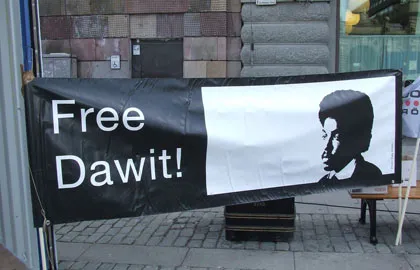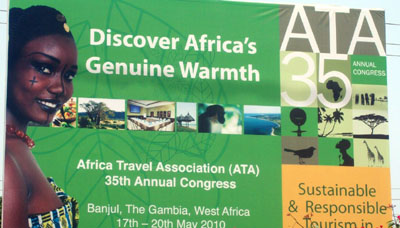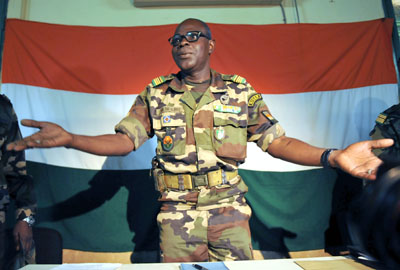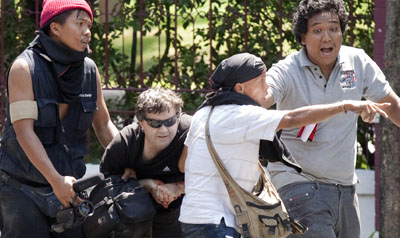2010

Reluctant activist: A brother’s struggle to free Dawit Isaac
In 2001, Eritrean security forces imprisoned Eritrean-Swedish journalist Dawit Isaac along with nine other journalists without trial in September 2001. The arrests effectively shut down the nation’s fledgling independent press and any potential political dissent prior to scheduled December 2001 elections, which were subsequently cancelled. To this day, Dawit is believed to be held incommunicado…
Investigation stalls in Colombian journalist’s murder
New York, May 24, 2010—Two months after the murder of Colombian journalist Clodomiro Castilla Ospino, the investigation is stalled and the victim’s daughter has been forced to flee her hometown of Montería after being followed and harassed. The Committee to Protect Journalists called on authorities today to conduct an exhaustive inquiry into Castilla’s killing, provide…

Gambia’s ‘Smiling Coast’ hides local media’s grimace
Who would not like to enjoy luxurious beach resorts and quaint fishing villages on the “Smiling Coast of Africa”? This is the pitch that the Gambian government made to participants of an international tourism conference last week. In fact, behind the idyllic facade of a tropical paradise wedged on Africa’s western Atlantic coast is the…

In Niger, a watchful press and a tolerant junta, for now
When a coup occurs somewhere in the world, journalists are usually the first to be sidelined. Beyond the classic scene of a new leader addressing the nation and promising democracy, stability, and wealth, reporters are usually simply undesirable within the new leadership’s entourage.
CPJ seeks investigation into Thai violence against media
New York, May 20, 2010—As details of violence emerge, the Committee to Protect Journalists called on the Thai government today to investigate the deaths of two journalists who were killed while covering the violence that has wracked Bangkok and other parts of Thailand for three months. It is the government’s duty to instruct military forces to be aware of…
Egyptian journalist Hamdi Kandil faces defamation charge
New York, May 20, 2010—The Committee to Protect Journalists condemns a criminal defamation lawsuit filed by Egyptian Foreign Affairs Minister Ahmed Aboul Gheit against independent journalist Hamdi Kandil. He faces up to six months in jail and a discretionary fine if convicted.

Eyewitness accounts: Journalists in Bangkok under fire
Firsthand accounts from journalists covering street protests in Bangkok illustrate the severity of the crisis and the danger to the front-line press. At least eight journalists have been shot, two of them fatally, while covering the unrest in the Thai capital, CPJ research shows. On Wednesday, police entered the Buddhist temple Wat Patum, where antigovernment…
Press freedom groups ask UNESCO to reject Obiang money
Dear Director-General Bokova: We, the undersigned freedom of expression organizations, join with the Committee to Protect Journalists to express our grave concern regarding the $3 million donation by Equatorial Guinea President Teodoro Obiang for the administration of an international prize in life sciences. As a leading institution that advocates “empowering people through the free flow of ideas and by access to information and knowledge,” UNESCO should not accept funds from one of Africa’s worst violators of press freedom.